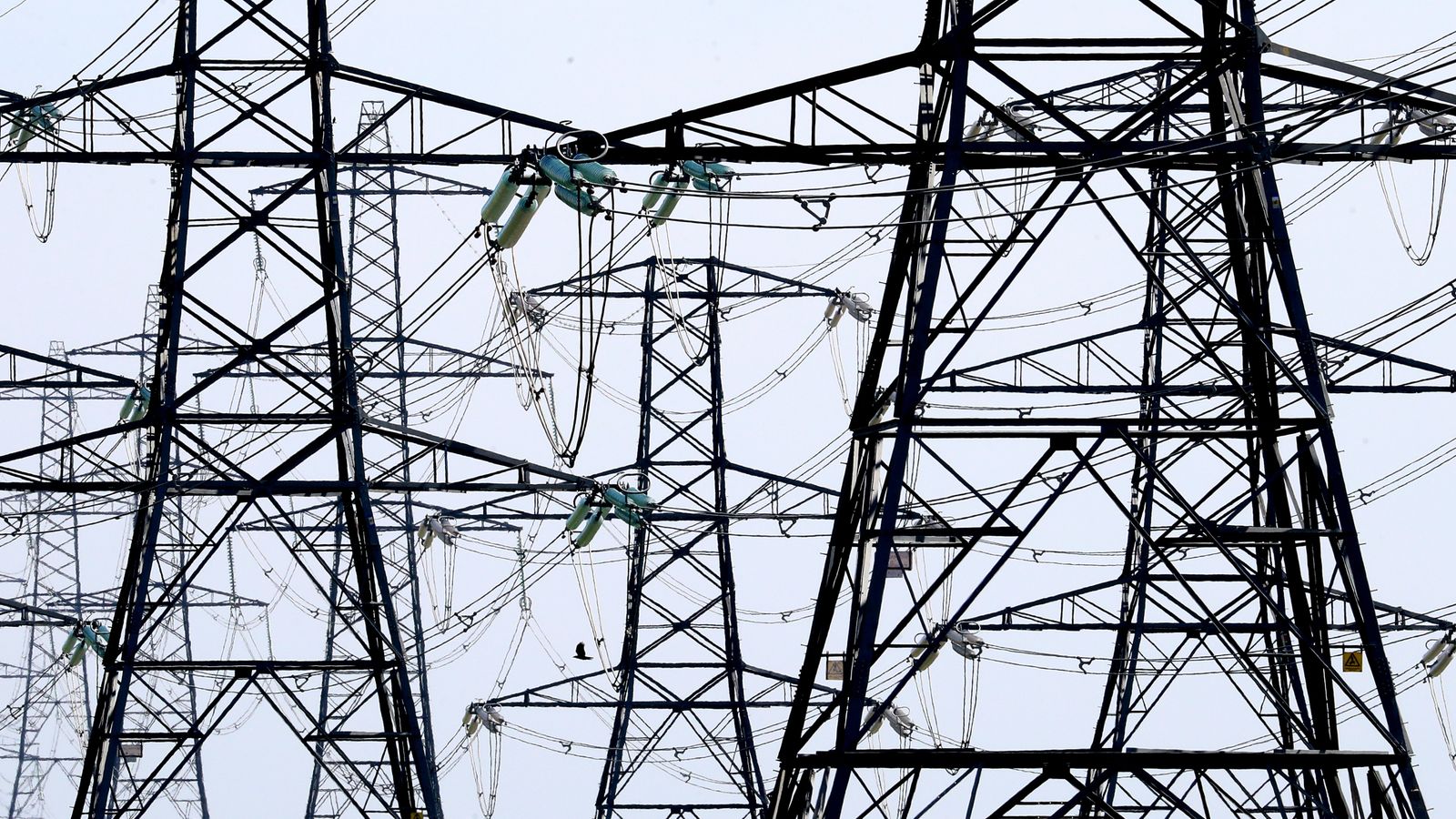‘We plan for all eventualities’: Minister fails to rule out energy rationing this winter

A government minister has failed to rule out energy rationing across the UK this winter after warnings three-hour power blackouts could be imposed.
Asked on Sky News whether the measure – not seen in the UK since the 1970s – would be brought in, climate minister Graham Stuart said the government did not “expect that to occur”.
But, he added: “You’ve seen all sorts of things happening in recent weeks and, you know, we plan for all eventualities.”
Politics live: Truss ‘blocked’ public information campaign on saving energy
The minister’s remarks come after the National Grid Electricity System Operator (ESO) warned households and businesses might face planned outages to ensure that the grid does not collapse in the “unlikely” event gas supplies fall short of demand.
Mr Stuart insisted it was one of the “more extreme” scenarios and the UK was “in a pretty good position compared to other European neighbours” when it comes to energy supply, as the country is less reliant on Russian gas.
However, he said: “You can’t guarantee what’s going to happen in terms of the nature of our energy supply.”
During her leadership campaign to become prime minister, Liz Truss pledged there would be no energy rationing under her government, while her rival Rishi Sunak warned “we shouldn’t rule anything out”.
Pushed on the issue yesterday, she told reporters: “We do have good energy supplies in the UK, we can get through the winter, but of course, I am always looking for ways that we can improve the price for consumers.
Advertisement
“That’s why we put in place the energy price guarantee as well as making sure we have as much supply as possible.”
Climate minister Mr Stuart also dismissed reports that a public information campaign on how to save energy, created by Business Secretary Jacob-Rees Mogg, had been scrapped by the PM.
According to the Times, the £15m was blocked by Number 10 as Ms Truss was “ideologically opposed” to what she saw as an interventionist approach.
Labour’s deputy leader, Angela Rayner, accused the PM of being “ideologically opposed to the public interest”.
Read more:
Energy crisis: How worried should we be about the lights going out?
But Mr Stuart told Sky News he did not recognise the reports, adding: “We’re in an iterative process of policy development and ideas, and we come to a conclusion, so the idea there was some highly developed campaign… I don’t recognise that. I don’t think that’s the way it was.
“But the last thing you want to do is tell someone, you know, to switch things off for the national need as it makes no difference to the national security position.”
‘Challenging winter’
The concern over planned blackouts is reminiscent of the response to the miners’ strikes and oil crisis in 1974.
The government introduced a three-day week, limiting business use, closing pubs and restaurants closed on quiet days and barring TV companies from broadcasting after 10.30pm – though essential services such as hospitals, supermarkets and newspaper printing presses were exempt.
Please use Chrome browser for a more accessible video player
0:15
According to the National Grid, the lights will stay on this winter unless the gas-fired power plants that produced 43% of Britain’s electricity over the last year cannot get enough gas to continue operating.
The margins between peak demand and power supply are expected to be sufficient and similar to recent years in the National Grid ESO’s base case scenario for this winter.
But in the face of the “challenging” winter for European energy supplies in the aftermath of Russia’s invasion of Ukraine, the grid operator is planning for what could happen if there were no imports of electricity from Europe.